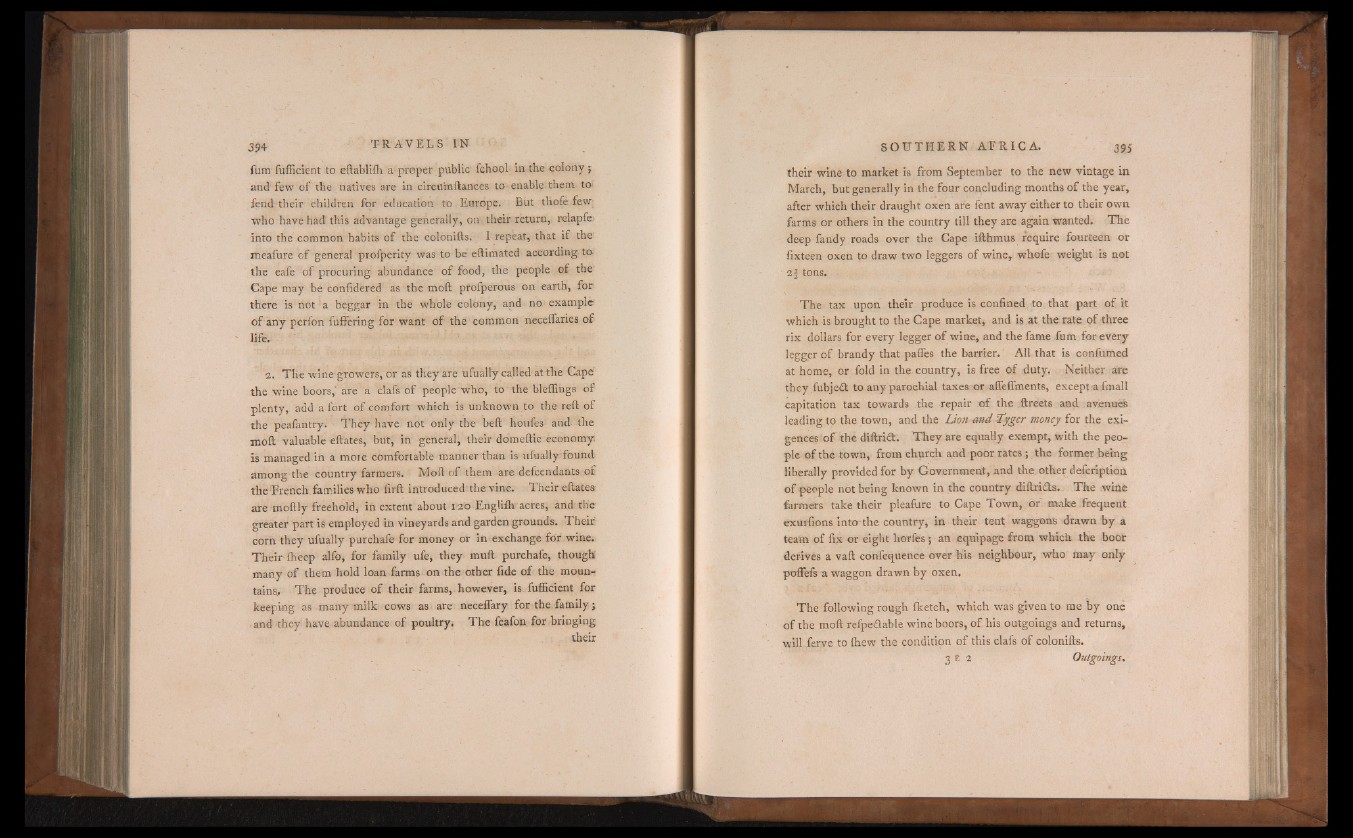
fum fufficient to eftabliffi a proper public fchool in the colony j
and few of the natives are in circumftances to enable them to
fend their children for education to Europe. But thofe few
who have had this advantage generally, on their return, relapfe
into the common habits of the colonifts, I repeat, that if the
meafure of general profperity was to be eftimated according to
the eafe of procuring abundance of food, the people of the
Cape may be conftdered as the moft profperous on earth, for
there is not a beggar in the whole colony, and no example
of any perfon fuffering for want of the common neceflaries of
life.
2. The wine growers, or as they are ufually called at the Gape
the wine boors,' are a clafs of people who, to the bleffings of
plenty, add a fort of comfort which is unknown to the reft of
the peafantry. They have not only the beft honfes and the
moft valuable eftates, but, in general, their domeftic economy,
is managed in a moie comfortable manner than is ufually found
among the country farmers. Moft of them are defcendants of
the French families who firft introduced the vine. Their eftates
are moftly freehold, in extent about 120 Englifh acres, and the
greater part is employed in vineyards and garden grounds. Their
corn they ufually purchafe for money or in exchange for wine.
Their fheep alfo, for family ufe, they mull purchafe, though
many of them hold loan farms on the other fide of the mountains.
The produce of their farms, however, is. fufficient for
keeping as many milk cows as are neceffary for the,family ;
and they have abundance of poultry. The feafon for bringing
their
their wine to market is from September to the new vintage in
March, but generally in the four concluding months of the year,
after which their draught oxen are fent away either to their own
farms or others in the country till they are again wanted. The
deep-fandy roads over the Cape ifthmus require fourteen or
fixteen oxen to draw two leggers of wine, whofe weight is not
2f tons.
The tax upon their produce is confined to that part of it
which is brought to the Cape market, and is at the rate of three
rix dollars for every legger of wine, and the fame fum for every
legger of brandy that pafles the barrier. All that is confumed
at home, or fold in the country, is free of duty. Neither are
they fubjed to any parochial taxes or afleflments, except a finall
capitation tax towards the repair of the ftreets and avenues
leading to the town, and the Lion and Tyger money for the exigences
of the diftrid. They are equally exempt, with the people
of the town, from church and poor rates ; the former being
liberally provided for by Government, and the other defcription
of people not being known in the country diftrids. The wine
farmers take their pleafure to Cape Town, or make frequent
exurfions into-the country, in their tent waggons drawn by a
team of fix or eight horfes ; an equipage from which the boor
dérivés a vaft confequence over his neighbour, who may only
poflèfs a waggon drawn by oxen.
The following rough iketch, which was given to me by one
o f the moft refpedable wine boors, of his outgoings and returns,
will ferve to (hew the condition of this clafs of colonifts.
3 É 2 Outgoings.